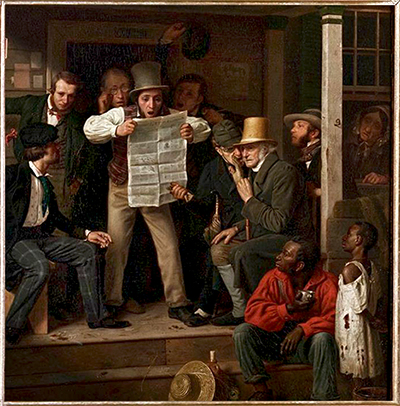
Richard Canton Woodville,
War News from Mexico (1848)
Crystal Bridges Museum of American Art
ê
DOWNLOAD CURRENT SYLLABUS.
|
Media & Politics 46.210.201
This course explores the role of the media in American politics and
the role of politics in the American media. We begin with a
survey of general approaches to media analysis and the history of mass communication. Then we
focus on the rise of the national press and increasing anxieties
about privacy and publicity. Next, we look at instances of
dishonest journalism and
examine how media consolidation and increasing competition have
affected the quality of news reporting. Finally, after reviewing the ongoing crisis
in the newspaper business, we will study a few major
political stories in depth.
During the second half of the term, students will make a
presentation and write a brief final paper either on one of
these major stories or on a media-related topic of their own
design.
At the end of the course,
students should come away with a comprehensive understanding of the factors involved in the
conversion of political events and developments into seemingly significant news.
ê All required
course materials will be accessible on this page.
|
Note: In Spring 2013,
Media and Politics will be a hybrid course with one in-person meeting
each week and an online component that will require students to complete
a web-based weekly assignment any time. The weekly
assignments are divided into two parts, one that is designed to ensure that students
are keeping up with the readings, and another that encourages more
independent exploration of media-related topics. Throughout the
term, we will draw from these assignments to promote fruitful and
inclusive discussion and to help students select topics for
presentations and papers.
|
1. Media Studies: A Survey of Basic Themes |
-
Timeline of the development of
communications technology.
(Browse)
-
"The
Ideas that Made Radio Possible," Federal Communications
Commission. (Browse)
-
Theodor Adorno and Max
Horkheimer,
"The Culture Industry:
Enlightenment as Mass Deception,"
from Dialectic of Enlightenment,
1944.
-
George
Orwell, "Politics
and the English Language" (London: Horizon, 1946).
-
Marshall McLuhan,
excerpt from
"Classroom Without Walls," Explorations
in Communication (Boston: Beacon Press,
1960). (Browse through collected quotes.)
-
Jean Baudrillard, "On
the Murderous Capacity of Images."
Reading questions/ web
assignment for Unit 1
|

TV envisioned, 1928.
|
|
3. Publicity, Privacy, and Politics |
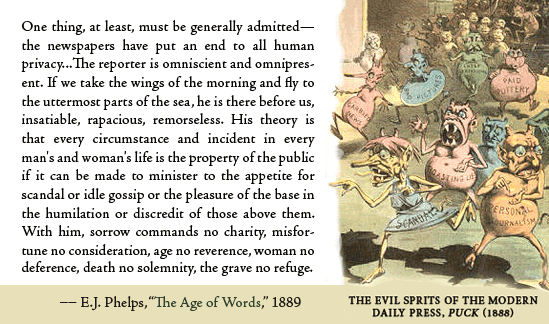 |
-
The Beecher Affair, or the "Greatest
Social Drama of Modern Times": Looking
Back at the First Newspaper Scandal in
the U.S. (Browse collected articles.)
-
"The
Right to Privacy," by Samuel Warren and
Louis Brandeis: A Digital Critical
Edition, edited by Susan E.
Gallagher (University of Massachusetts
Press, still in beta version). Read introduction
and main text.
Reading questions/web assignment for Unit
3
|
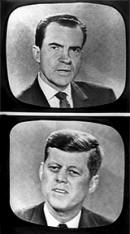
Click image to view the Kennedy-Nixon debate. |
|
4. Politics in the
Age of Screens
|
-
Franklin Delano Roosevelt,
Report to Congress,
1945 (newsreel).
-
Richard M. Nixon,
Checkers Speech, September 23, 1952
(excerpts).
-
The Kennedy-Nixon Debate,
opening statements, September 26, 1960.
-
News, Network, entry from the
archives of the Museum of Broadcasting
-
The Livingroom Candidate,
Museum of the Moving Image
-
Susan E. Gallagher, " The
Personal Is Political: Now What?,"
presentation at the Annual Law and
Society Association Conference, 2003.
Reading questions/web assignment for Unit
4
|
|
5. The Decline of Newspapers
|
- "Newspapers:
By the Numbers,"
State of the News Media, 2012,
Pew Research Center.
-
Newspaper Death Watch, read featured
post.
- "In
Changing News Landscape, Even Television
is Vulnerable,' Pew Research Center
for the People and the Press: Trends in
News Consumption, 1991-2012.
-
Barry Ritholtz, "Media
Consolidation:The Illusion
of Choice," July 16,
2012.
-
Eric Alterman, "Think
Again: The End of Newspapers and the
Decline of Democracy," Center for
American Progress, March 22, 2012.
Reading questions/web assignment for Unit
5
|
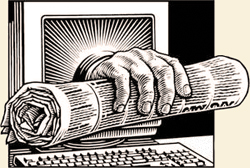 |
 Midterm Exam: Instructions and Materials Midterm Exam: Instructions and Materials |
|
|
|
6. Analyzing the Media/Decoding
the News
Note: In order to
complete the remaining assignments, you must first
review the materials for presentations and papers.
Assignment 1: Locate
additional sources and compose thesis
statement for presentation/paper.
Assignment 2: Write
and submit outline for
presentation and paper.
Assignment 3: Compose
polished first draft.
Assignment 4: Revise and
resubmit final paper
|
|
|


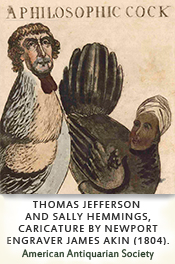

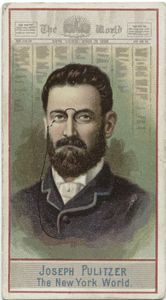




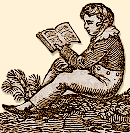 Reading/Web
Assignment for Unit 6
Reading/Web
Assignment for Unit 6